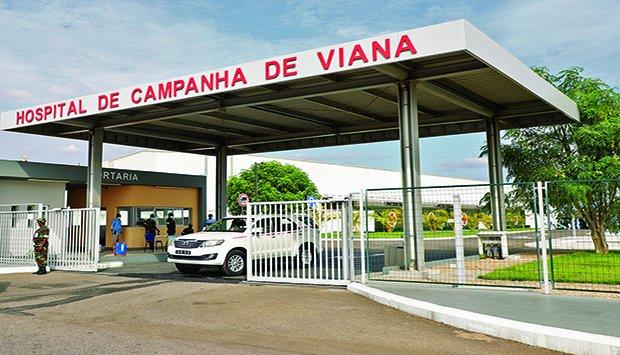Africa-Press – Angola. Two years after the emergence of the Covid-19 pandemic in Angola, the Executive has given priority to the construction of infrastructures that support chronic non-communicable diseases, specifically kidney, lung and heart diseases, as well as the purchase of more medicines. antimalarials, antiretrovirals and tuberculostatics.
According to the Secretary of State for Public Health, in addition to the construction of hospitals, which serve to manage endemics and pandemics, more than 25,000 employees are employable, including doctors, nurses, health technologists and administrative staff.
Franco Mufinda said he was still unaware of the amount invested in the health sector in the last two years, but he praised that the pandemic was controlled with the help of vaccination and individual protection measures, which many citizens were able to comply with.
The official said that the Government knew very early on how to implement individual and collective prevention measures, with the strong leadership of the President of the Republic, João Manuel Gonçalves Lourenço.
The peak of Covid-19 in the country was between December 2021 and February 2022, with the circulation of the Ómicron variant, but, guarantees the official, the situation is already under control. So far, the country has registered more than 99,000 confirmed cases, 1,900 deaths and over 97,000 recovered patients.
Franco Mufinda revealed that the contamination rate is currently 0.1 percent, the death rate is 1.9 percent and the rate of recovered patients is 98.0 percent.
The number of people vaccinated with one dose is 11,539,051, which corresponds to a coverage of 55.60 percent of the target population. People who received the full dose are 5,935,473, corresponding to 28.60 percent, with the total number of doses administered against Covid-19 being 17,378,716.
first cases
The first two positive cases of Covid-19 in the country were detected in Luanda, on March 21, 2020. The infected are male nationals, aged 36 and 38 at the time, and had just returned to the capital, from Portugal, in TAAG flights on the 17th and 18th.
At the time, the Minister of Health, Sílvia Lutucuta, informed that Angola was officially among the countries that lived with the Sars-Cov-2 virus, at a time when the world already had more than 20,000 deaths and 400,000 cases, since the first infection, in December 2019, in the city of Wuhan, China.
Nine days after the confirmation of the first positive cases in Angola, the Minister of Health announced, on 29 March, the first fatalities associated with Covid-19: two nationals, aged 59 and 37.
Sílvia Lutucuta explained that the fatalities resided in Portugal and arrived in Angola on the 12th and 13th of March, respectively, having been hospitalized at Clínica Girassol. The 59-year-old citizen had a very rapid evolution of the disease, associated with respiratory failure. The second case, aged 37, was hospitalized for seven days, eventually dying.
The virus in the country
The World Health Organization (WHO), cited by the director-general of the National Institute for Health Research (INIS), Joana Morais, assesses that the behavior of the virus in Angola did not differ much from other countries, presenting characteristics and an evolutionary process. similar.
Regarding the control and fight against Covid-19 in Angola, the director-general of INIS said that the success was due to health and legal measures created and imposed by the Executive, since the beginning of the pandemic.
The measures imposed over the two years made it possible to effectively contain and cut the spread of the virus, without, however, reaching high numbers, when compared to other realities. The fight against Covid-19 in Angola, he said, exceeded expectations and received praise internationally, due to the correct epidemiological surveillance measures.
In addition to the health measures implemented, he said, communication between the Executive, health professionals and the population allowed the achievement of a positive result.
“Of course, we all feel the pressure caused by the pandemic, from the difficulties in accessing materials for the fight, namely diagnostic equipment, biosecurity, and others”, he said.
Current situation
Today, it is possible to observe consecutive days without registration of deaths associated with Covid-19 and to note low incidence rates of new cases, the result of a lot of work done by all Angolans, said Joana Morais. “However, it is necessary not to lose the focus of the fight”, she asked.
The doctor stressed that care must be taken to avoid the introduction of possible variants that have not yet circulated in Angola, in order to maintain the situation under control, balance and the spirit of work in epidemiological surveillance.
For More News And Analysis About Angola Follow Africa-Press






